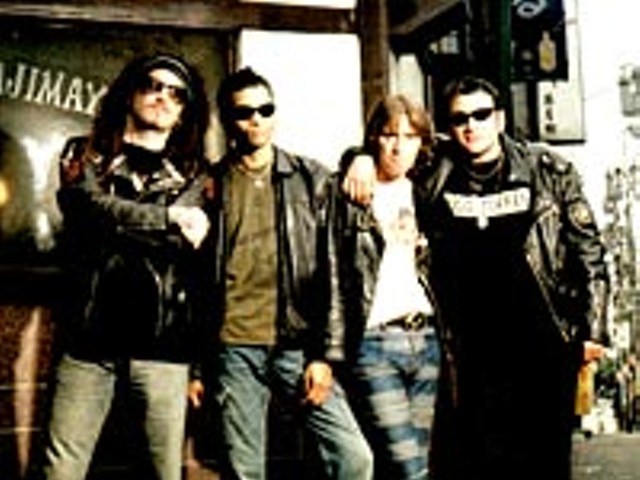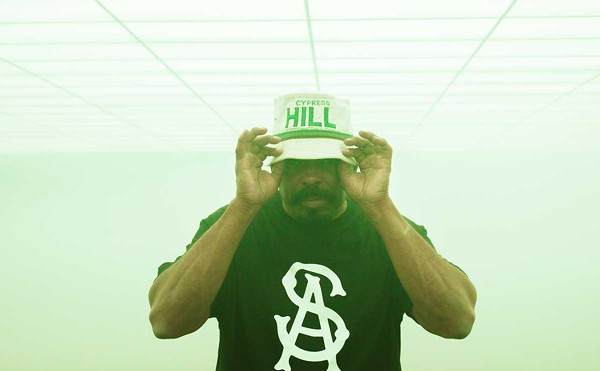Of all the classic music spotlighted in Standing in the Shadows of Motown, perhaps none is so indelibly associated with the film’s inspirational theme as that of the Four Tops. One electrifying moment comes when, during the concert segment, the Funk Brothers slide into one of history’s most famous song intros and, with Gerald Levert uncannily channeling vocalist Levi Stubbs, proceed to bring down the house with “Reach Out I’ll Be There.”
If you’re of a certain age demographic, hearing the tune in that film, and listening to the original version now, is like a sense memory: a chance whiff of a particular scent of perfume triggers a childhood memory of being hugged tightly by your mom; the sound of car tires crunching on gravel lets you imagine for a split-second that dad’s home from work and pulling into the driveway. “Reach Out” does that for me: all at once I’m 11 years old again, hanging out on a Saturday afternoon in front of hometown platter emporium Mac’s Record Rack and listening to this week’s hottest new soul 45s blaring from the shop window.
Anthology, boasting 48 freshly remastered cuts (and with a booklet containing track-by-track annotation plus a terrific essay by journalist Stu Hackel), overflows with those sense memories residing in our collective subconscious. Many are obvious choices, of course, stuff you can still hear on oldies radio stations: the group’s first Holland-Dozier-Holland hit, 1964’s joyful “Baby I Need Your Loving,” and the equally exuberant “I Can’t Help Myself (Sugar Pie Honey Bunch),” or the astonishing minor-key triple punch that is “Reach Out,” “Standing In The Shadows Of Love” and “Bernadette.”
But the unexpected familiarity with tunes I’d completely forgotten about that is what really floors me — for example, the 1967 cover of the Left Banke’s “Walk Away Renee” (here presented in an previously unreleased alternate mix), or 1970’s subtly psychedelic “Just Seven Numbers (Can Straighten Out My Life),” which hails from the group’s association with producers Frank Wilson and Lawrence Payton, after the H-D-H hit-making team had left Motown, or a left-field 1972 collaboration with The Moody Blues, “A Simple Game,” that charted big in the U.K. but only creased the R&B charts here in America.
Speaking of unexpected pleasures, the 18 songs documenting the Four Tops from 1972 onward, when the group had left Motown, contain more than a few ear-opening moments. In particular, a brace of 1972-74 cuts produced for ABC-Dunhill by Dennis Lambert and Brian Potter meet the high standards set previously during the Motown era, notably mid-tempo ballad “Ain’t No Woman (Like The One I’ve Got)” and the funktastic “Are You Man Enough” (from the soundtrack of the Shaft In Africa blaxploitation flick). Also worth investigating: the disco-era “H.E.L.P.”; “When She Was My Girl,” the group’s Motown-like 1981 comeback hit for Casablanca Records; and 1988’s “Indestructible,” from the group’s final, but none-too-shabby, album of the same name.
“Plaintive. Romantic. Sentimental. Happy. Stylish. Sophisticated. Elegant. Earnest. Carefree.” These are terms that could be used to describe any soul artist, but not necessarily all at once. Applied, as the All Music Guide does, to the Four Tops, however, the combination just about nails it. To that list I’ll add “transcendent” — transcending mere words on paper to illuminate a song’s interior emotional complexity. Maybe transcending time, too — 50 years on, the brilliant legacy forged by the Four Tops hasn’t dimmed one iota.
E-mail Fred Mills at [email protected].





